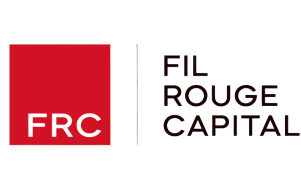

Introduction
In recent years, there has been a significant shift in consumer behavior, with more and more people seeking out sustainable alternatives to traditional products. This trend is particularly evident in the sustainable fashion industry, where eco-conscious consumers are driving change by demanding greener, more ethical choices. In this article, we'll explore the reasons behind this shift and how it's shaping the future of eco-friendly fashion.
Growing Awareness of Environmental Impact
One of the primary drivers of the shift towards sustainable alternatives is the growing awareness of the fashion industry's environmental impact. Consumers are becoming increasingly informed about the negative effects of traditional production methods, such as water pollution, greenhouse gas emissions, and waste generation.
As a result, many conscious consumers are actively seeking out brands that prioritize sustainability, opting for products made from eco-friendly materials like plant-based leather. By choosing sustainable alternatives, consumers can feel good about their purchases knowing they're supporting brands that align with their values.
Tamara Vučetić, founder of Sabant, sharing her thoughts at the World Bio Market conference
Desire for Transparency and Accountability
Another factor contributing to the rise of sustainable alternatives is the growing demand for transparency and accountability in the sustainable fashion industry. Consumers want to know where their clothes come from, how they're made, and what impact they have on people and the planet.
Brands that are open and honest about their production processes, sustainable materials, and supply chains are more likely to earn the trust and loyalty of eco-conscious consumers. At Sabant, we pride ourselves on our commitment to transparency, sharing the story of our materials from gin distillery to finished product.
The Role of Social Media and Influencers
Social media and influencers have played a significant role in raising awareness about sustainable fashion and driving the shift towards eco-friendly alternatives. Platforms like Instagram and YouTube have become powerful tools for educating consumers about the impact of their fashion choices and showcasing sustainable brands and products.
Influencers and activists who champion sustainability have helped to make eco-friendly fashion more accessible and appealing to a wider audience. By sharing their personal journeys and recommendations, they inspire their followers to make more conscious choices and support brands that prioritize ethical and sustainable practices.
The Impact of the COVID-19 Pandemic
The COVID-19 pandemic has accelerated the shift towards sustainable alternatives in fashion. The global crisis has prompted many consumers to reevaluate their priorities and consumption habits, with a greater emphasis on health, well-being, and environmental responsibility.
As a result, more people are seeking out sustainable and ethical fashion choices that align with their values and contribute to a more resilient and equitable future. The pandemic has also highlighted the importance of supporting local and independent businesses, many of which are at the forefront of the sustainable fashion movement.
The Role of Legislation and Industry Initiatives
Governments and industry organizations are also playing a role in driving the shift towards sustainable alternatives in fashion. Legislation such as the EU's Circular Economy Action Plan and the UK's Environmental Audit Committee inquiry into fashion sustainability are putting pressure on brands to adopt more eco-friendly practices and materials.
Industry initiatives like the Ellen MacArthur Foundation's Make Fashion Circular and the Sustainable Apparel Coalition are bringing together stakeholders from across the fashion value chain to accelerate the transition towards a more sustainable and circular fashion system. These efforts are helping to create a more supportive environment for sustainable innovation and encouraging brands to embrace eco-friendly alternatives.
Conclusion
The growing consumer demand for sustainable alternatives in fashion is a powerful force for change, driven by a combination of increased awareness, desire for transparency, social media influence, the impact of the pandemic, and supportive legislation and industry initiatives. As more consumers embrace eco-friendly options like plant-based leather and sustainable materials, brands that prioritize sustainability and ethical practices are poised to thrive in the years ahead.
At Sabant, we're proud to be part of this movement, crafting sustainable materials that allow consumers to make choices they can feel good about. As the shift towards sustainability accelerates, we're excited to see how consumer behavior will continue to shape the future of eco-friendly fashion for the better. By working together – consumers, brands, influencers, governments, and industry organizations – we can create a fashion industry that is kinder to people and the planet, one conscious choice at a time.







.png&w=3840&q=75)







